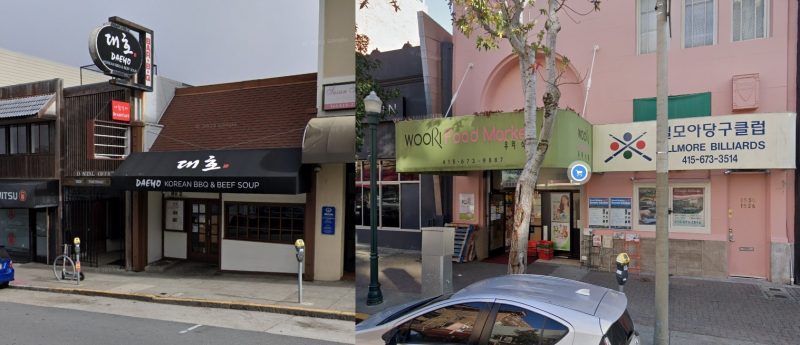
San Francisco has a relatively smaller Korean-American population than Los Angeles, and their residences are far apart.
However, the quiet formation of a Koreatown in an unexpected location is attracting more foot traffic, local media outlet The San Francisco Standard reported on June 6.
San Francisco Koreatown is located in Japantown, a neighborhood about 2.2 miles from Chinatown, where dozens of Korean-American businesses have already opened and are thriving.
Centered on Post Street between Fillmore and Laguna streets, the neighborhood is home to restaurants such as YakiniQ Korean BBQ, Jina Bakery, Daeho Kalbijjim & Beef Soup, Beque BBQ, Doobu, San Wang Restaurant, Dimples, Pagoda, and Seoul Garden, as well as bars, bakeries, and hair salons.

“The goal is to promote the area as an ‘unofficial’ Korean cultural district without undermining the historical ties of Black and Japanese American communities,” said Jinhyup Song, marketing manager of Woori Group, told the publication.
Rich Hashimoto, president of the Japantown Merchant Association, said he welcomes more businesses and diverse Asian restaurants to the neighborhood.
Slider Wang, a Chinese immigrant born in South Korea who has owned the Korean Chinese restaurant San Wang for 46 years, said, “In recent years, we have seen an increase in multiracial customers, not just Korean or Chinese,” but he doubted that Koreatown would grow due to the decline in immigration.
According to the 2021 American Community Survey (ACS) statistics released by the federal Census Bureau, 12,018 Korean Americans were living in San Francisco County.
BY NICOLE CHANG, HOONSIK WOO [chang.nicole@koreadaily.com]




